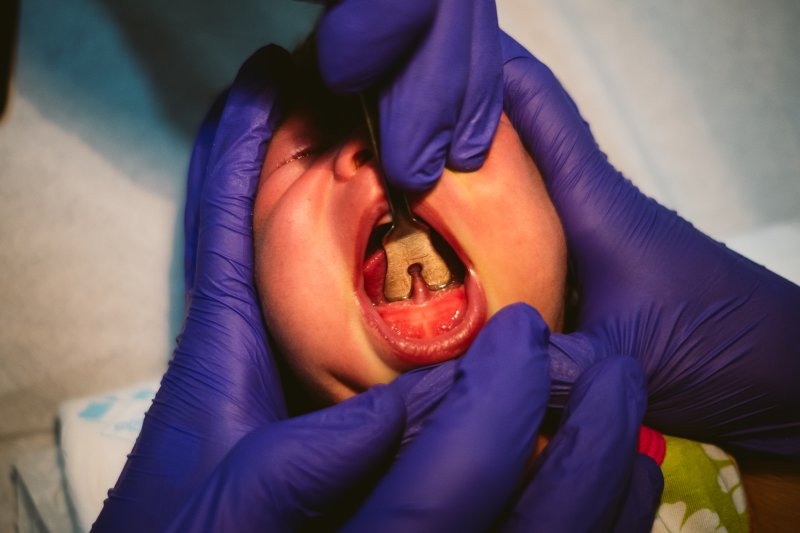
Does it seem like you’re hearing more and more people talk about their children having lip and tongue-ties? If so, it’s not some strange or random occurrence that has suddenly appeared with no explanation. Instead, there is a clear reason why this unfortunate problem is becoming increasingly common within pediatric dental offices throughout the nation – breastfeeding. Read on to find out more about the connection between nursing and lip and tongue-ties and what you can do should you discover your little one is exhibiting symptoms.
Breastfeeding: Why Is It the Reason for Lip and Tongue-Ties?
While breastfeeding cannot take the blame for causing a lip or tongue-tie, it can be the reason so many cases are turning up in pediatric dental offices.
Lip and tongue-ties or thin bands of tissues known as frenulums form while a baby is still in the womb. Although most infants go on to experience no issues, others are born with greater restrictions, making it harder for little ones to move their lip or tongue freely.
This problem has been around for centuries; however, as women began using formula to feed their babies, the issue of lip and tongue-ties decreased significantly. Once healthcare professionals began encouraging mothers to breastfeed instead of bottle-feeding their infants, an uptick in the number of cases occurred.
Here’s why:
Breastfeeding requires the baby to establish a solid latch. This means they must take the entire nipple into their mouth and create a seal. Doing so will allow them to suck and extract the milk so it will flow freely. However, with a lip or tongue-tie, it can make latching much more difficult.
What Are the Signs of a Lip or Tongue-Tie?
If you notice that your baby is exhibiting any of the following symptoms, don’t hesitate to contact your child’s pediatric dentist to discuss the potential of a lip or tongue-tie:
- Difficulty latching
- Fatigued feeding
- Fussiness
- Poor weight gain
- Acid reflux or colic
- Falling asleep while attempting to nurse
- Cracked nipples
- Blocked milk ducts
- Mastitis (infection)
- Depression
Failure to seek treatment for your child’s lip or tongue-tie can lead to slurred speech (a lisp), difficulty transitioning to solid foods, mouth breathing, and more.
How Can a Frenectomy Improve a Lip or Tongue-Tie?
Pediatric dentists who possess the training to perform frenectomies can do so quickly and safely. The process involves releasing the banded tissue so that the lip or tongue can have a wider range of motion.
Immediately following treatment, your baby will be able to nurse, as this will help soothe any discomfort they might experience. You’ll also receive helpful stretches you can perform on your little one at home to ensure proper healing.
With the help of a frenectomy, you will begin to notice a dramatic improvement in the way your baby responds to feedings. Not only will this create a more positive experience for them but for you as well.
About the Author
Dr. Natalie Gardner is a pediatric dentist who earned her dental degree from the University of Maryland, Baltimore, School of Dentistry. She received board certification in 2017 and is an active Diplomat with the American Board of Pediatric Dentists. Additionally, she is well-versed and trained in lip and tongue-tie treatment, offering frenectomies to infants, children, and teens. If your little one is struggling to latch while feeding or is unable to take a bottle, contact us at (267) 481-7707.
